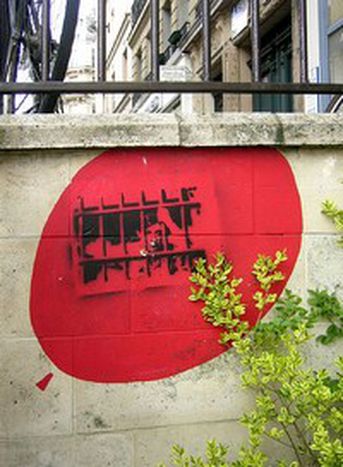
France closes her eyes to prison reality
Published on
Translation by:
 emily schirrer
emily schirrer
GENEPI is a French student organisation with a difference – its 1, 300 volunteers work onsite in prisons, and witness the cold reality of life behind bars everyday
Clémence Patureau is a student like any other. Well, practically; since 2004, she has headed GENEPI, the National Student Organisation for Teaching Prisoners ('Groupement Etudiant National d'Enseignement aux Personnes Incarcérées'). Founded in 1976, just two years after the French prison riots, the volunteer group participates in a prisoner rehabilitation programme, with student-led educational support and promotion of cultural activities in prisons.
What's different about GENEPI?
I'ts one of the biggest student organisations in France and, more importantly, the biggest prison organisation. GENEPI can be found over the entire domestic territory, with 1, 300 volunteers and 13 full time workers. We are currently involved with around 80 penal institutions. We also collaborate with grass-roots organisations, such as the ‘Prison Visitors’, and more militant lobby groups, who provide information, such as the ‘International Prison Observatory’ (OIP).
Are there similar student organisations in Europe?
The Russian foundation ‘Uventa’ is comprised of a group of students who offer philosophy and psychology courses to inmates. I am aware of a northern Italian organisation which also co-ordinates regular 'café-philosophy' sessions. However, although there are many local European initiatives, there is nothing with GENEPI’s national standing.
In January 2006, the European prison rules were unanimously approved by all 46 member states of the European Council. Do you witness violations of these rules in your everyday work?
They are actually a lot stricter than the former European rules of 1987. These measures were designed to start things moving forwards, but they are not being acknowledged. Example: a lack of resources is no justification for prison conditions which violate human rights. The European council means to quash the idea that those who are deprived of their freedom have lost their rights. The prisoners have all their rights, except for prison-related issues, such as the freedom to come and go for example.
Could France be considered as an exception to the European rule concerning their management of the prison issue?
No. France is rather the bad pupil in relation to other members of the European council, but truly shares the global politics of other European countries – such as the excessive use of prisons as a way out, overcrowding, and concentrating very little efforts on finding alternative sanctions.
The only difference is that in France, we try to hide our prisons. People don’t feel like it is their concern, they don’t want to see what goes on behind bars. Prison authorities themselves are ashamed. It's in stark contrast to Swedish authorities, who apply a publicity principle concerning everything that goes on in prison. They have no qualms about making the reality known.
Translated from « Les gens ne veulent pas voir ce qui se passe dans les prisons »


